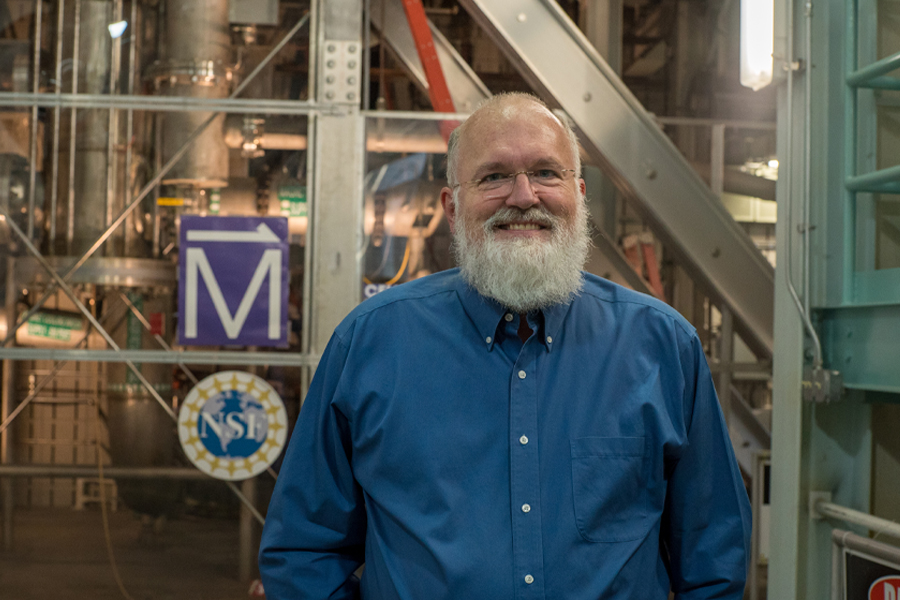MagLab director named to National Academy of Sciences

The director of the Florida State University-headquartered National High Magnetic Field Laboratory has been named a member of the National Academy of Sciences, an esteemed designation that recognizes his distinguished career in physics.
Greg Boebinger joins eight current and retired Florida State University faculty as members of a national academy, including current MagLab Chief Scientist Laura Greene.
“I am thankful and humbled to be elected by scientists I greatly admire to serve alongside them in this prestigious organization,” Boebinger said. “Ultimately, I see this as a new opportunity to help advance science in our country.”
Considered one of the highest honors a scientist can receive, the National Academy of Sciences was established under a congressional charter and signed by President Abraham Lincoln in 1863 to provide science and technology expertise to the nation.
“I am thrilled that Greg has received this honor from the National Academy of Sciences, joining several of our other distinguished faculty who hold this distinction,” said Florida State University President John Thrasher. “As director of the MagLab, Greg has forged new partnerships, broken new records and further enhanced the MagLab’s reputation as the largest and most high-powered magnet laboratory in the world. His work has clearly contributed to FSU’s reputation as a research powerhouse.”
This is the most recent achievement on Boebinger’s long list of accolades. He also is a fellow of the American Academy of Arts and Sciences, American Physical Society (APS) and the American Association for the Advancement of Science.
Boebinger’s highly cited research focuses on high-temperature superconductivity and the quantum Hall effect. His work as MagLab director also facilitates thousands of scientists from around the country who advance their individual research goals by leveraging the unique magnets and expertise located at the MagLab.
“One aspect of directing the MagLab that I enjoy the most is the enabling of young scientists to launch their own careers,” Boebinger confesses. “It is highly gratifying to see early career scientists take root and thrive at the MagLab or within its international user program.”
The National Science Foundation awarded the MagLab to FSU in 1990 and the facility opened in 1994. It is funded by the National Science Foundation and State of Florida. Boebinger became director of the lab in 2004.
“Greg Boebinger’s well-deserved selection to the National Academy of Sciences is evidence of the top-tier research community we have here at Florida State University,” said Interim Vice President for Research Laurel Fulkerson. “His track record speaks for itself. Like his colleagues who have previously received this honor, Dr. Boebinger has distinguished himself as a researcher of international stature. We are lucky to have him here at Florida State.”
Prior to FSU, Boebinger worked at Los Alamos National Laboratory in New Mexico and the famed Bell Labs in New Jersey.
In addition to his role at the MagLab, Boebinger is a professor of physics in the College of Arts and Sciences. He has directly supervised eight graduate students and four postdoctoral scholars throughout his time at Florida State.
“Greg’s influence on Florida State University has been deep and lasting, from research productivity to student supervision to over a dozen years of directing the MagLab,” said Sam Huckaba, dean of the College of Arts and Sciences. “He is a great scientist and person, and he is richly deserving of election to the NAS.”
The National Academy of Sciences (NAS) is a private, non-profit society of distinguished scholars who are elected by their peers for outstanding contributions to research. This week, 120 new members joined the approximately 2,400 existing NAS members and 500 international members, of which approximately 190 have received Nobel prizes. The NAS is committed to furthering science in America, and its members are active contributors to the international scientific community.
